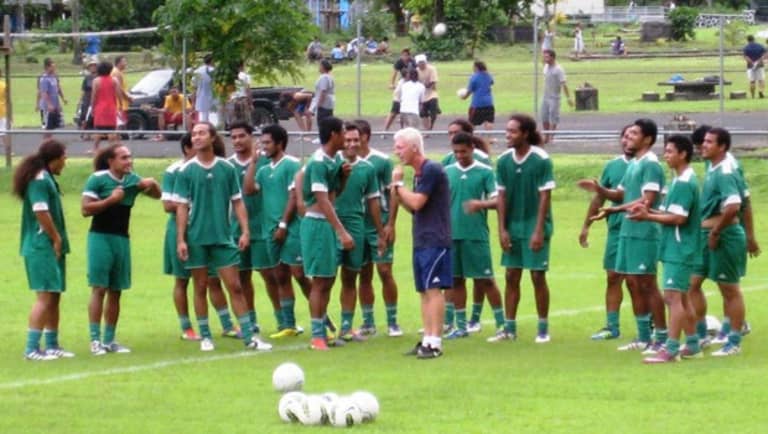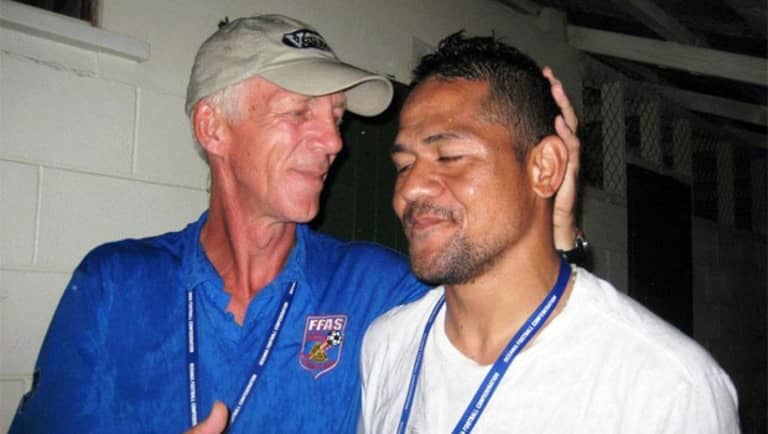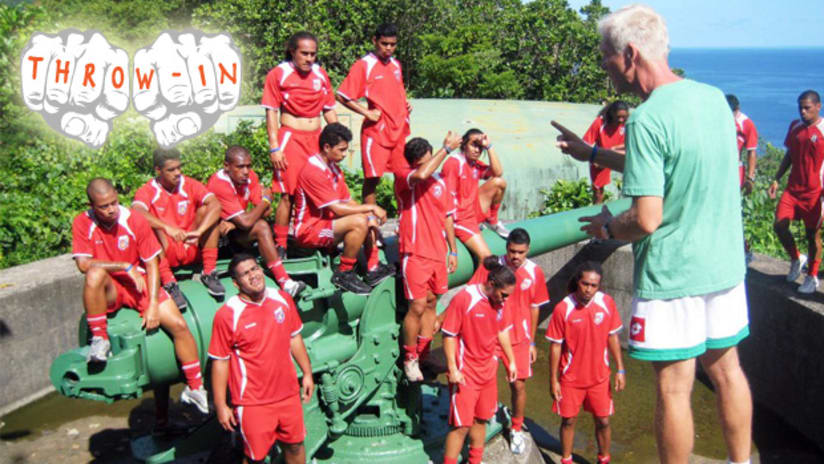Photos courtesy of Gail Megaloudis Rongen
Thomas Rongen has never had this much attention in his 35-plus years in professional soccer. He’s given dozens of interviews in the past week – more, he estimates, than during any other period in his career.
That’s saying a lot for a guy who first became a pro playing Total Football at Ajax under its very creator, Rinus Michels.
Rongen’s had plenty of MLS glory, too, piloting the Tampa Bay Mutiny to the league’s best record in its inaugural year and winning the first-ever MLS Coach of the Year award. He also led D.C. United to victory at MLS Cup ’99. And let’s not forget his US Under-20 team’s run to the quarterfinals at the 2007 U-20 World Cup, with big wins over Brazil and Uruguay along the way.
Yet his experiences over four weeks last month have made him the center of attention. And that’s fine with him. Rongen spent an hour on the phone with MLSsoccer.com this week between other requests for his time, recounting what he calls “the single most challenging, rewarding and amazing coaching experience of my life.”
In fact, he has to apologize a couple of times for pausing to compose himself.
“My God – I’m getting emotional just talking about it again,” he says.
Rongen pulled off something that’s somewhere short of a miracle in his most recent coaching gig: He guided the American Samoa national team – ranked dead last in the FIFA world rankings for the past decade – to its first-ever victory as an officially recognized national team.
That’s something that not a single one of Rongen’s six predecessors were ever able to do. And though the American Samoans ultimately came up short in their far-fetched quest to qualify for the 2014 World Cup, Rongen totally transformed the culture on a tiny island of some 68,000 inhabitants, barely more than 75 square miles in size and whose closest metropolitan city – Brisbane, Australia – is 2,500 miles away.

The memories from his four weeks in the South Pacific are simply too many to count, he says.
There was the last-minute phone call from the federation president, asking him if he could bring 20 soccer balls with him before he departed his home in Florida.
“I thought he was joking,” Rongen recalls. “He said, ‘No, really. We went through the whole island, and we only had two balls.’ I literally had to unpack half my clothes, have 20 balls shipped to me by US Soccer, deflated them and packed them.”
There was the learning on the fly about the island’s unique culture and spirituality, a blend of native tribalism and missionary Catholic and Mormon influences.
“I knew that in certain villages, at 6:15 each evening, they stopped to pray for 15 minutes,” Rongen says. “I stopped and did the same.”
There was the inspirational commitment from his 23 players, all but three of whom lived on the island and all of whom were either full-time students or worked at the local StarKist tuna cannery, or even on the tuna boats trolling the rich waters.
“I had one of the only cars on the island,” Rongen explains. “I’d kick [the players'] butts at practice every morning, then I’d have to drive them to school or to the tuna boats. They came right back again and did a second session without a single complaint.”
There was center back Johnny Saelua, a transgender fa'afafine, in the native tongue, who dressed and lived as a woman, but whose orientation was never questioned nor scrutinized by her teammates – especially considering she was one of the best players on the team.
There was the bonding with the young men (and woman) and sleeping on the cement floor with them every night during the three-week training camp. There were the yoga and meditation sessions that gave them balance.
There were the late-night video sessions of everything from the Spanish clásico to MLS Cups. All these things entrusted Rongen – the “palagi,” the term for a white man from the mainland – to his charges.
And there was, of course, victory. The team’s 2-1 win over Tonga in the first game of the round-robin World Cup qualifying tournament on Nov. 22 was a stunning turn of events for a team that had been outscored an unbelievable 184-4 over its past 21 contests.

The winning goal was produced by 17-year-old Shalom Luani, a high-schooler whose participation on the team was dependent on the permission of his local chief, which Rongen negotiated. And for veteran goalkeeper Nicky Salapu (at right), it erased the deep scars of a world-record 31-0 whipping he conceded to Australia a decade earlier.
“I know it sounds corny,” Rongen says, “but it was such a wholesome experience, and a bit of a spiritual journey for me personally.
“For the past 30 years of my career as both a player and a coach, it was all about wins and losses – you’re driven by fear of failure. These guys, they just did it for the love of the game, and a sense of loyalty. It was incredibly humbling.”
But what Rongen may be proudest of is something that few coaches in the world are able to do: He feels he left a lasting legacy on the island. Thanks to what he and his players accomplished, he says, people care about the game in American Samoa – a place traditionally obsessed with American football – which means it could evolve and grow in a part of the globe that is an afterthought to the rest of the world.
“Their interest in the game has grown,” Rongen says. “They’ve now got a lot of young kids coming out of the woodwork asking to play. Deep down, I hoped that would happen.”
Where Rongen goes from here is still in question. He was relieved of his duties as US Under-20 head coach last May after his squad disappointingly failed to reach this past summer’s U-20 World Cup. Since then, he’s remained a scout for the USSF (who helped arrange his position in American Samoa), and could remain in that capacity after his contract expires on Dec. 31.
But there’s also been talk of him serving as some sort of hired gun for the Oceania federation, too. He and OFC president David Chung have discussed a position that would see him serve as coach for some of the region’s other down-on-their-luck teams, too, such as Samoa, Tonga or the Cook Islands, for instance.
Just maybe, if he could work that same magic with some of those teams, it’d almost be like he’d be the South Pacific version of his miracle-working fellow Dutchman Guus Hiddink, MLSsoccer.com suggests.
“That’s quite a compliment,” he says, getting a little misty again. “If that’s what they ended up calling me, I wouldn’t mind that at all.”
Jonah Freedman is the managing editor of MLSsoccer.com. “The Throw-In” appears every Thursday.










